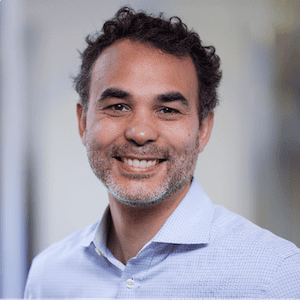-
The Evolution of Impact Investing – An Interview with Amit Bouri
Since its founding in 2009, the GIIN has become a standard bearer for the industry, providing everything from specialized training to fund managers and a searchable database of funds and products, to an active Career Center and the influential IRIS catalog of performance metrics. We spoke with Amit Bouri, the chief executive officer and co-founder of the GIIN, about his views on the sector's challenges and future.
- Categories
- Impact Assessment, Investing, Social Enterprise
-
Weekly Roundup: A New Africa Accelerator – What Moms, Kids and GE Get Out of It
This week, GE and Santa Clara University’s Miller Center for Social Entrepreneurship announced the healthymagination Mother & Child Initiative, which intends to help social enterprises refine their business plans, manage their human capital and prepare for growth. We discuss this program, the value of old-school development solutions, and (potentially) big news from Facebook in this roundup.
- Categories
- Investing, Technology
-
When People Say They ‘Lack the Money to be Banked’ – Here’s What They Mean
Between 2014-2015, Bankable Frontier Associates worked with other partners to collect baseline data on access to financial services in three member countries: Fiji, Samoa and the Solomon Islands. In these surveys, not having enough money also emerged, unsurprisingly, as the number one reason for not having a bank account among unbanked Pacific Islanders. But here's what we found when we dug a bit deeper.
- Categories
- Uncategorized
-
How PayPal is Moving Beyond Payments: An Interview with Tyler Spalding
Many people know PayPal primarily through its ubiquitous buttons enabling online donations to nonprofits, blogs and other websites and causes. But it also has a significant presence in the world of social business – something that represents a growing priority for the payments provider. We discussed this evolving focus with Tyler Spalding, lead manager on PayPal's Social Innovation team.
- Categories
- Uncategorized
-
Blueprint for Ignition: How the Catalyst Fund Got Started
The Catalyst Fund's intervention is specific: It provides small, flexible grants of up to US $100,000 alongside mentoring and advisory services from investors and a robust learning agenda, dedicated to supporting innovative but pre-investable inclusive fintech startups. Here's how the Accion Venture Lab team worked with the Gates Foundation, JPMorgan Chase & Co, Quona Capital, Grey Ghost Ventures and the Omidyar Network, among others, to create it.
- Categories
- Investing, Technology
-
How Entrepreneurship Unlocked Workplace Daycare for the Children of Garment Workers
With Bangladesh reigning as the cheapest place to produce clothing in the world, the government and the multinational businesses that depend on low-cost labour have yet to tackle the root of poor working conditions. One social entrepreneur, however, has steadily made progress partnering with communities and factories to improve the lives of women workers and their children. Ashoka Fellow Suraiya Haque founded Phulki in 1991, and today the organisation operates nearly 90 community-based and 25 factory-based daycare centres in Dhaka.
- Categories
- Uncategorized
-
Helping Smallholders Grow a Pharmacy on their Farms
Eliminating hidden hunger is not easy, but with resources in the right place, with governments, donors and civil society working together and with the right policies developed, BRAC believes it can introduce poor children in developing countries to a nutritious vegetable – the orange-fleshed sweet potato – they will come to favor.
- Categories
- Agriculture, Health Care
- Tags
- nutrition
-
NexThought Monday: Sprinters vs. Limpers – Three Critical Success Factors for Digital Finance Deployments
According to the GSMA, there are 271 mobile money services in operation across 93 countries, and digital financial services are now available in over 60 percent of developing markets. An increasing number of services are reaching scale, as 30 services now have more than one million active accounts. But 241 have failed to do so. So what separates these 30 “sprinters” from those deployments that are merely limping along?
- Categories
- Uncategorized










